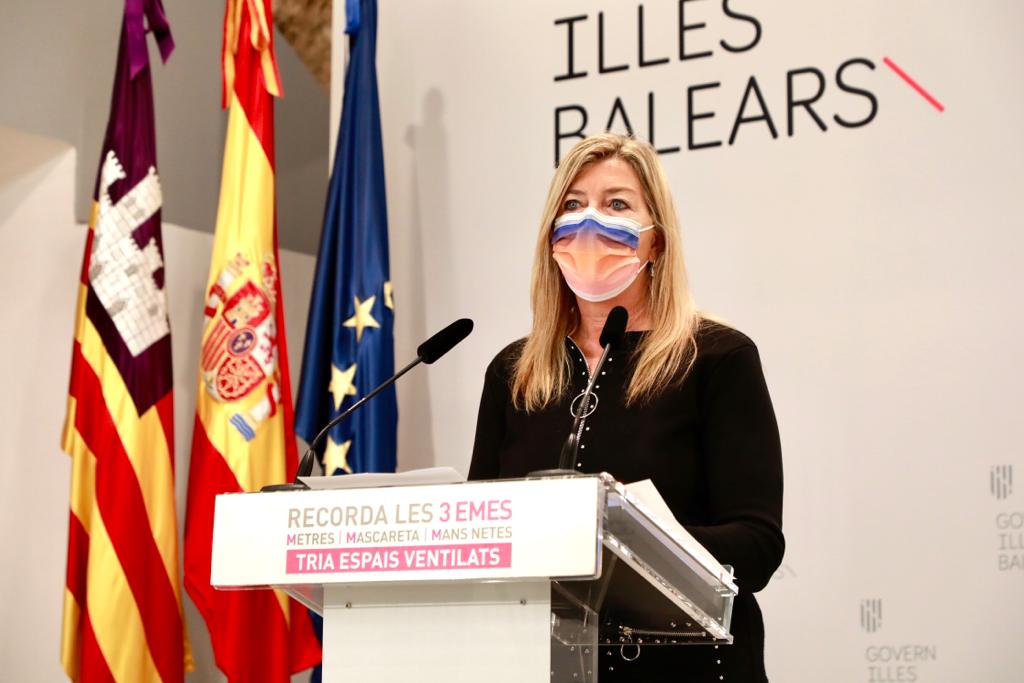The Balearic Islands put an end next Saturday, February 12, to the requirement of the COVID certificate to access bars, restaurants, nightlife venues, nursing homes, gyms, cinemas, theaters, sporting events and acts with a high influx of people. This was agreed by the members of the Social Dialogue Table at the meeting held at the Consolat de Mar.
The Minister of Health, Patricia Gómez, has justified the decision to withdraw the requirement of the document, which had been in force on the islands since October, due to the improvement in the epidemiological situation in the Balearic Islands, with a decrease in incidence and hospital admissions and in UCI, at a press conference after the meeting of the Government with the FELIB and with social and economic agents.
This requirement will also be eliminated in order to access the visits and outings regime in residential-type social services, supervised housing for the elderly, people in a situation of dependency and people with disabilities. Instead, it will be maintained for workers in social and health centers.
The Government considers that its application has been useful in recent months to contain and soften the impact of the sixth wave of COVID-19 in the Balearic Islands. Especially noteworthy has been the boost given to vaccination against SARS-CoV-2, since during the period in which it has been in force, more than 44,000 people over 12 years of age have chosen to receive at least one dose for alleviate the effects of the disease.
Likewise, the community, despite the strong impact caused by the omicron variant —more transmissible than its predecessor delta—, has been mostly below the Spanish average in terms of cumulative incidence, both at 14 and 7 days .
In addition, according to the latest report prepared by the Balearic Epidemiology Service, the impact of the sixth wave has also been milder in proportional terms of hospitalization and deaths than previous waves.
In the case of those over 64 years of age, of the 9,621 cases diagnosed from October 19 to the time of preparing the report, 7.3% required hospitalization on the ward, 0.68% in the ICU and 1. 18% died due to the disease.
In the previous wave, between June 18 and October 18, 2021 (2,592 cases in people over 64 years of age), the impact was practically five times higher in the case of ICU admissions (3.1%) and deaths (5.2%), and three times higher in the case of cases that required admission to the ward (20.8%).
The epidemiological situation has improved in recent weeks, with an incidence that has gone from an AI14 of 2,815 cases per 100,000 inhabitants in just one week (from February 2 to 9) to one of 1,661 in the archipelago. The hospital situation has also improved in the last 7 days: of 83 people in the ICU and 390 admitted to the ward on February 2, yesterday there were 61 in the ICU and 343 on the ward. For all these reasons, the Government considers it appropriate to relax measures in order to progressively recover normality.

The Minister of Health, Patricia Gómez. Photo: GOIB.







Leave A Comment